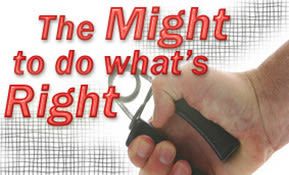
Emuna Therapy
The patient soon learned to differentiate between his will and Hashem’s Will. He knew that this new path was coming from G-d because he felt very peaceful…

Reb Noson, Rebbe Nachman’s chief disciple, wrote that: “ a person must cast aside his logic and reason, and instead strengthen his faith… According to Rebbe Nachman, it is only due our lack of awareness of G-d’s absolute and supreme sovereignty that all types of suffering and all afflictions exist in the world.
Dr. James Esdaile, M.D. gained a wide reputation in Europe during the 1840’s for performing many painless surgical amputations. His method was called Mesmerism (founded by Franz Anton Mesmer, M.D.) which was the precursor of clinical hypnosis. The term hypnosis was coined by Dr. James Braid, M.D. in the 1880’s. Essentially, the procedure is to verbally guide the patient into a deep state of relaxation in which the patient’s mind is less bound to logic and reason. As the analytic functions of the mind recede the patient nullifies himself and becomes more receptive to ideas and suggestions that are offered to him by the hypnotist. In this case, to suggestions that the limb to be amputated will become “more and more numb, wooden-like and insensitive to pain.” Once the patient is ready to forfeit his own thinking and believe in somebody or something outside of himself then he becomes a willing vessel to receive the new ideas, and suggestions of the hypnotist. Hashem gives everyone the unconscious ability to produce anesthesia, and overcome many physical and psychological obstacles. These untapped spiritual resources are often intuitive, feeling-oriented, global, poetic and dream-like. The creative abilities of the unconscious are dialectically opposed to conscious thought which is linear, and characterized by logic, mathematical- type analysis and goal-orientation. The essential point here is that it is the least logical part of the mind that produces the anesthesia. The person who is successful in numbing his pain with hypnosis is not actively exerting his will; he is actually surrendering his will and entering into the realm of faith and trust. It is only the patient’s belief in the “power” of the hypnotist and his willingness to nullify his will and become a vessel to receive the ideas and suggestions of the hypnotist that relieves his pain. This inner yearning that people have to surrender their will to doctors and therapists is a displaced yearning for a religious experience.

In truth the only reason that a patient gets well under the care of a certain psychotherapist or doctor is because it is Hashem’s will that that therapist or doctor be the vessel through which a recovery is to take place. Often times there may be nothing that the psychotherapist can do because Hashem is waiting for the patient himself to reach out to him directly. In these types of situations, the best help that a therapist can offer is to pray that his patient will be healed and speak to him about Emuna.
A patient of mine here in Israel, like many addicts, has had a lot of psychotherapy but is still addicted. His addiction was causing him to be fired from one job after the next and to become involved in illegal activity. He couldn’t pay his bills, he had no friends, his kids didn’t speak with him and his wife was about to leave him. We call this the Blessing of “hitting bottom” because he finally began to see what he was about to lose if he kept trying to live life his way. So Hashem forced humility upon him, and it was only then that there was room in his head for something other than what he thought. As he began to let this Spiritual process happen he forfeited his control to G-d and one other trusted person. At first he was encouraged to follow the advice he was given not so much because he wanted to follow it, but in an effort to break his own self-will and learn to surrender. He was listening to another for the first time in his life without trying to manipulate the situation. Being motivated he soon learned to differentiate between his will and Hashem’s Will for him. He started to make the right decisions. He knew that this new path was coming from G-d because he felt very peaceful with each right decision and the positive direction his life was taking. He has completely stopped his addictive behavior now for more than a year. His marriage has never been better, he is working, and his kids are no longer afraid of him. He takes responsibility for himself now and for maintaining his Spiritual Health. He has stopped blaming others for his problems. Speaking to G-d has become a part of his daily life and he is not embarrassed or apologetic about his relationship with Hashem. The results: Hashem has done for him what he could not do for himself.
My patient has been transformed into a new person. No longer the hostile, abrasive and self-centered person that he was, neighbors, friends, and family hardly recognize this soft-spoken, sensitive and caring man who always talks about Hashem. He is making real friends for the first time in his life and has taken to helping out his wife by cleaning and cooking at home. He still prays to find the income that he lost, but he is not resentful about it – he has accepted that it is in his own best interest for him to currently have less money because Hashem brought it about. He prays constantly to know what is Hashem’s further will for him and says that he feels at peace with the thoughts that come to him during his meditation. For anyone who knows how debilitating addictive disorders can be, this man’s rapid recovery can only be understood as a supernatural occurrence. “In truth”, Rebbe Nachman teaches us, “Israel is above nature” when we put our belief in G-d and his Divine Providence.











Tell us what you think!
Thank you for your comment!
It will be published after approval by the Editor.